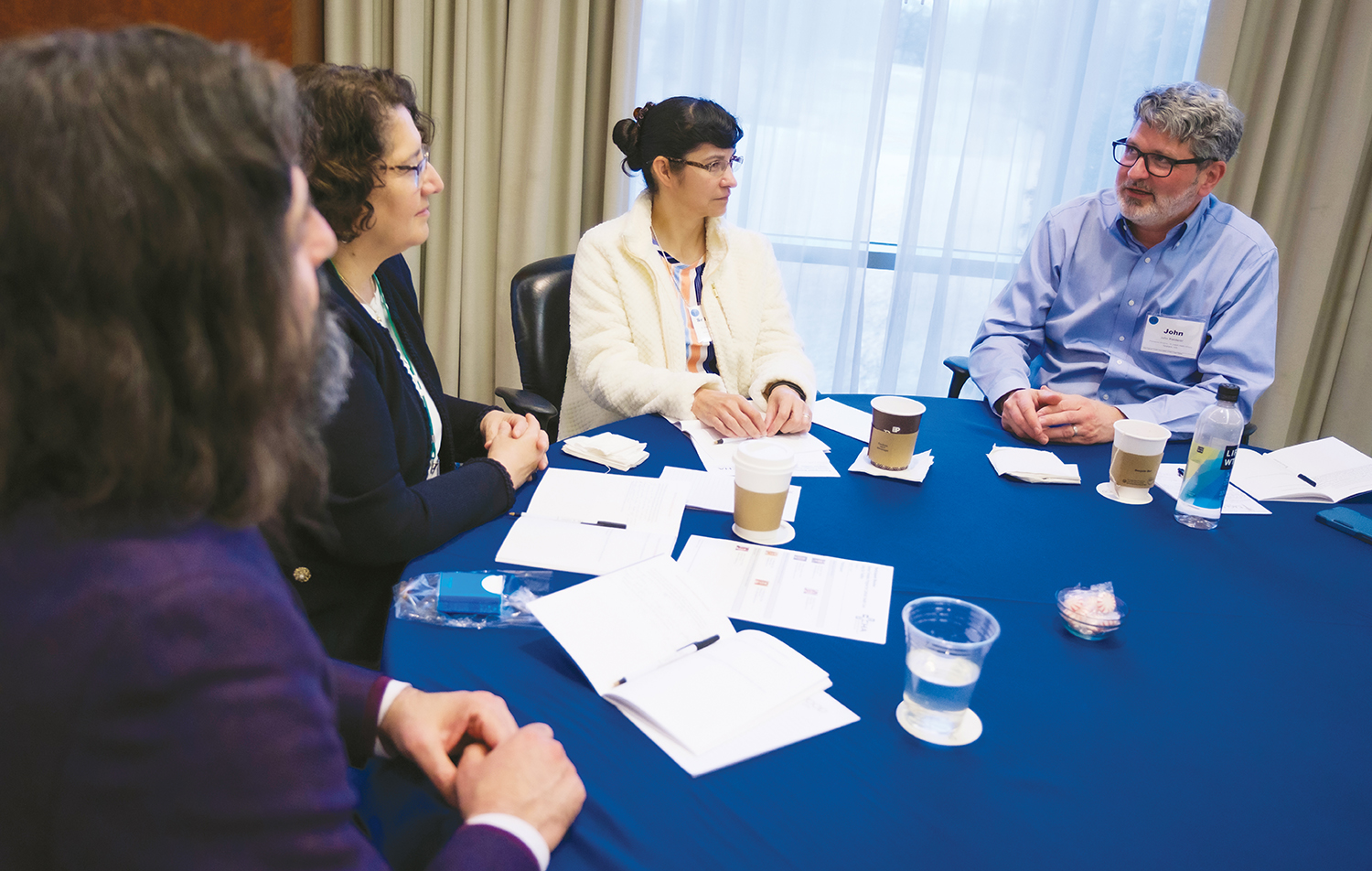
Since last fall, CHA has been intensifying its efforts to learn from ministry leaders how sponsorship is changing and how to best support sponsor bodies into the future. Through interviews and surveys late last year and discussions early this year, CHA has learned that as ministry members look ahead, they believe it will be essential to prioritize both new sponsor recruitment and continual sponsor formation. These ministry members say CHA has a critical role to play in these efforts.
To help ministry members advance sponsor recruitment and formation efforts, CHA is developing a sponsor formation framework. This framework will explain how sponsor bodies of all types can develop and implement programming to identify, onboard and continually form their members. The association also is creating related resources, including recruitment and succession planning guides, a sponsor assessment tool, and educational materials.
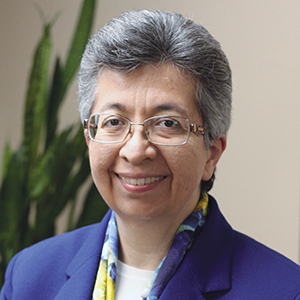
"We understand that sponsor formation is a lifelong journey. We also understand that sponsors are constantly discerning their work because the environment is changing faster," says Sr. Teresa "Tere" Maya, CCVI, senior director, theology and sponsorship at CHA.
Sr. Maya says CHA is using a "synodal process" to support sponsor bodies. The synodal process, as used by the Vatican in recent years, is one that begins by listening to a wide swath of people and then discerns how to respond to further the mission.
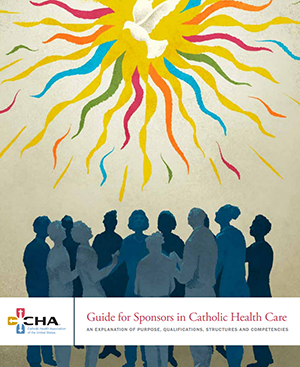
Survey and discussion
The resources under development will complement the "Guide for Sponsors in Catholic Health Care" that CHA released in 2021. That guide explains what Catholic health ministry sponsorship is, how it is evolving, the types of sponsorship models the ministry uses, and the responsibilities and ideal personal qualifications and core competencies of sponsors. The guide is a members-only resource.
To determine what new resources ministry sponsor bodies need next, CHA engaged consultants Rich Shively and Paul Stone in conducting one-on-one interviews and an online survey of sponsors last year. The consultants asked about the current state of sponsorship, emerging issues and questions sponsors want addressed. In January, Shively and Stone discussed their findings at a CHA webinar and then at CHA's Sponsorship Institute.
In a summary, Shively and Stone wrote that a top concern is sponsor body viability, given that many current sponsors are aging and the bodies must recruit the next generation. Another key finding is that sponsors believe it is essential that they continue to have a meaningful impact on the ministries they oversee. The study also found that it is important to view sponsor formation through a new lens — as a long-term vocation, with formation taking place throughout a sponsor's tenure. The study and discussion also surfaced a desire among sponsors for a way to better assess their effectiveness. Sponsors also expressed that it is important to amplify positive stories about Catholic health care for the public.
New framework
CHA is working with Shively, Stone and ministry sponsorship experts to build out a framework for how sponsorship can evolve in a way that addresses the concerns and priorities identified over the past half year.
Sr. Maya explains that the new framework will describe how CHA and member organizations can develop formation programs that promote continuous personal and spiritual growth of individual sponsors and sponsor boards. The framework will provide guidance for sponsor candidates to understand the role and new sponsors to learn how to carry out their responsibilities.
CHA plans to share the initial version of the framework with sponsors in the fall and then to refine it with their feedback.
The new framework will help to inform CHA's work to tailor existing — or create new — resources and programming to meet sponsors' evolving needs.
The association will develop a sponsor assessment tool to help sponsor bodies evaluate their effectiveness. To achieve this, it will work to leverage the resources of the ministry identity assessment tool — ministry systems already are using the tool to assess mission effectiveness — to support the work of sponsor bodies. Dashboards and high-level reports from the ministry identity assessment can help sponsors determine their own effectiveness in directing and influencing the ministry to carry out its mission. The sponsor assessment will be designed to complement governance assessments where appropriate. Plans are in place to start piloting the assessment early next year.
Recruitment, succession guides
CHA is also developing a recruitment guide that will approach sponsorship as a vocation. Sponsor bodies will be able to use the guide in the recruitment and discernment of new sponsors. The guide will outline how to identify and invite potential sponsors to begin discernment and preparation to serve in this ministry. In addition, the guide will help ministries "widen the aperture" to seek new sponsors and share some of the best practices to prepare them for this important role.
Shively says this resource will address a need expressed by sponsors. He says sponsor candidates who are laity "want to understand what they are being called to. They want to understand what they are inheriting."
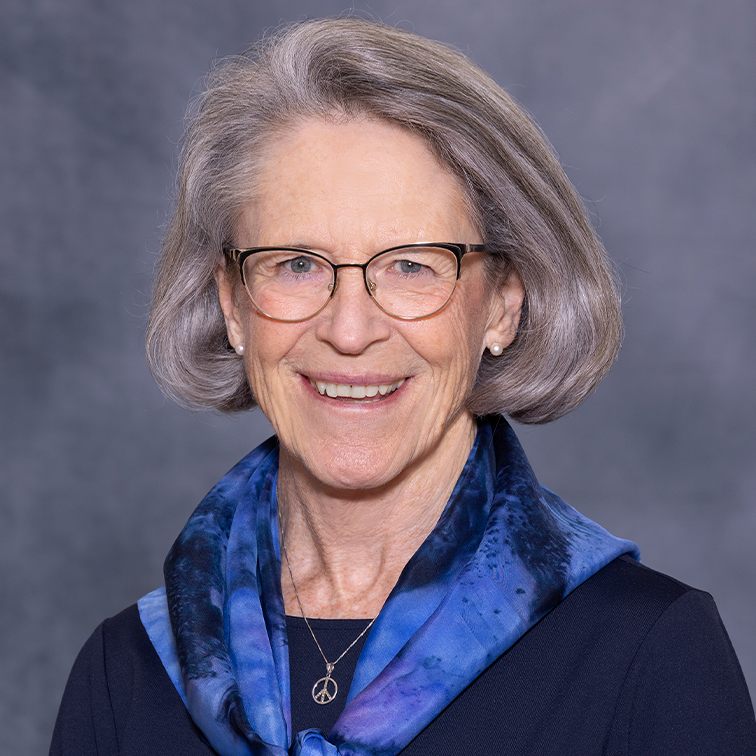
The association is also creating guides for succession planning for sponsors. Mary Anne Sladich-Lantz is on the sponsors' council of Providence St. Joseph Health; she is on CHA's sponsorship formation steering committee; and she is frequently on the faculty of CHA sponsors programs. She notes that new sponsors can be difficult to find, and she anticipates sponsor bodies will need to start looking in new places. She notes that CHA is well-positioned to help ministry sponsor bodies to undertake succession planning and recruitment because of its function as a convener of Catholic health care leadership. She says of succession, "This is a conversation we will be having forever."
In addition to the other materials under development, CHA is refining or creating online resources for educating sponsors and others about the role. This includes "microlearning" sessions, videos and written materials that CHA will introduce beginning later this summer.
Sponsor formation program
CHA will also use its learnings from the past year and the new framework to refine its flagship program, the Sponsor Formation Program. CHA is enrolling people this summer for the in-person program next year.
Sladich-Lantz, the recipient of CHA's 2022 Sister Concilia Moran Award, notes that the Sponsor Formation Program and other in-person sponsor gatherings continue to be impactful for those who take part.
"It is a blessing to see sponsors from across all of Catholic health care in the U.S.," she says. "It broadens the conversation and experience. And we can engage in conversation with other systems and other ways of living out our call. There is a huge benefit to having this perspective on Catholic health care across the U.S."
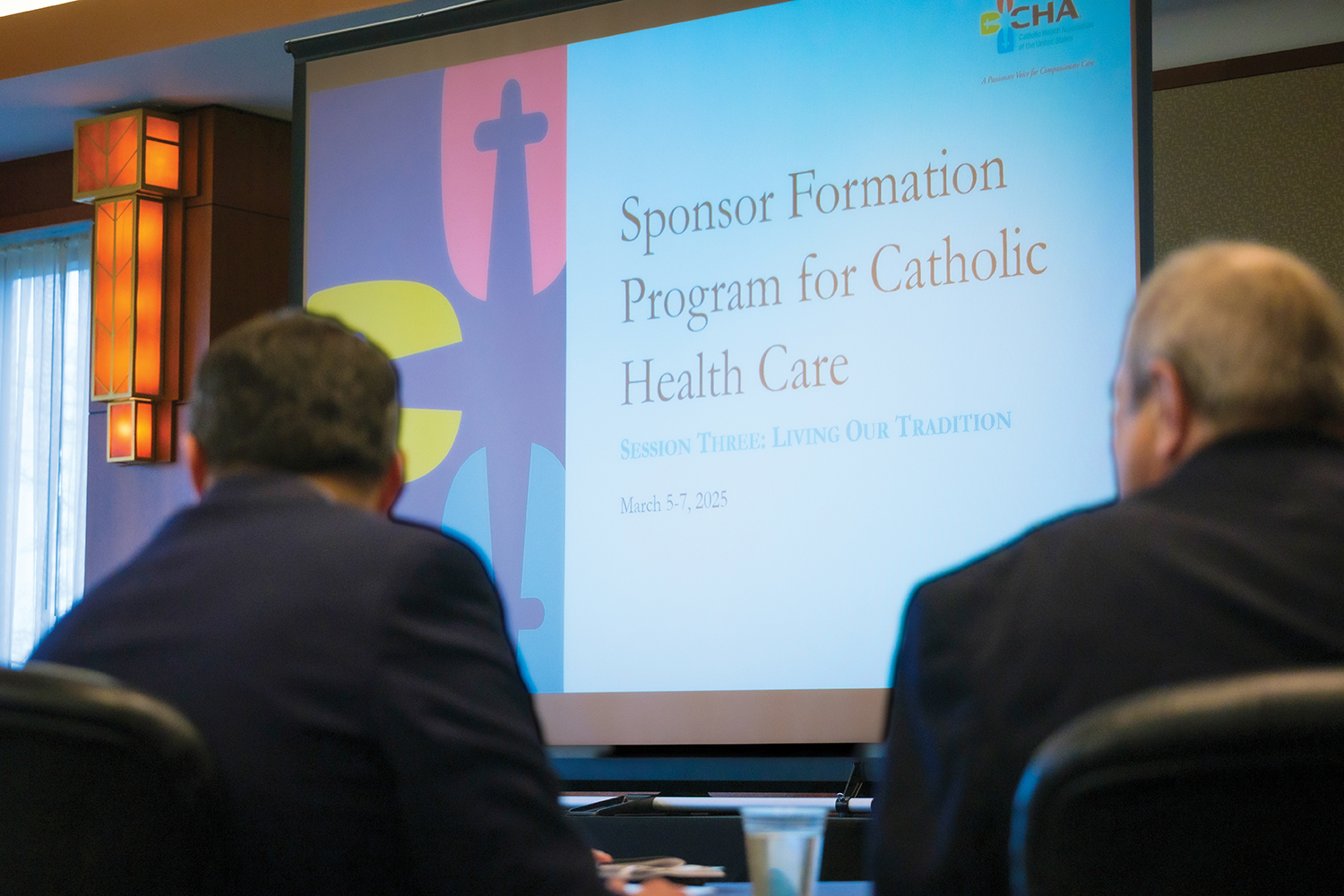
A retrospective
Sr. Maya says amid all the work going on in sponsorship, CHA is concurrently undertaking a retrospective view of what has transpired over the 30 or so years since Catholic health ministries began adopting the then-novel ministerial juridic person sponsorship model. The model allows for the integration of laity into the ministry's sponsor bodies.
Sr. Maya says CHA is interested in "harvesting the experiences that sponsors have had for wisdom" on how to move forward.
Sladich-Lantz says she believes that there is much to learn through this review, including by asking women religious who helped to usher in this era how they came up with this approach, what their vision was, and how the current sponsor bodies are carrying out that vision.
She says this and all the work going on in sponsorship is essential in today's era. "We are seeing that Catholic health care can and will continue as a force for love in the world, including through the ministerial juridic persons that include laypeople," she says. "Catholic health care remains strong and a significant force for those on the margins."
She adds, "This is our 'burning platform' — now more than ever, having Catholic health care committed to our social tradition reminds us that every single person is worthy and deserves to flourish."
This is the third article in a series on how CHA's mission and sponsorship department is reimagining its work.
Further reading:
